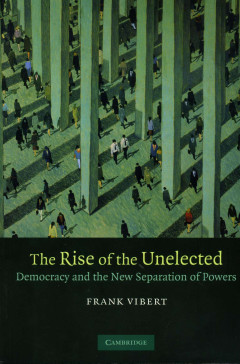Ditapis dengan
Ditemukan 1 dari pencarian Anda melalui kata kunci: subject="Pemisahan kekuasaan d...

The Rise of the Unelected: Democracy and the New Separation of Powers
Unelected bodies, such as independent central banks, economic regulators, risk managers and auditors, have become a worldwide phenomenon. Democraties are increasingly turning to them to demarcate boundaries between the market and the state, to resolve conflicts of interest and to allocate resources, even in sensitive ethical areas such as those involving privacy of biotechnology.This book is e…
- Edisi
- -
- ISBN/ISSN
- 978-0-521-69414-8
- Deskripsi Fisik
- 199 hal. ; 25 cm
- Judul Seri
- -
- No. Panggil
- 320.404 VIB r
 Karya Umum
Karya Umum  Filsafat
Filsafat  Agama
Agama  Ilmu-ilmu Sosial
Ilmu-ilmu Sosial  Bahasa
Bahasa  Ilmu-ilmu Murni
Ilmu-ilmu Murni  Ilmu-ilmu Terapan
Ilmu-ilmu Terapan  Kesenian, Hiburan, dan Olahraga
Kesenian, Hiburan, dan Olahraga  Kesusastraan
Kesusastraan  Geografi dan Sejarah
Geografi dan Sejarah